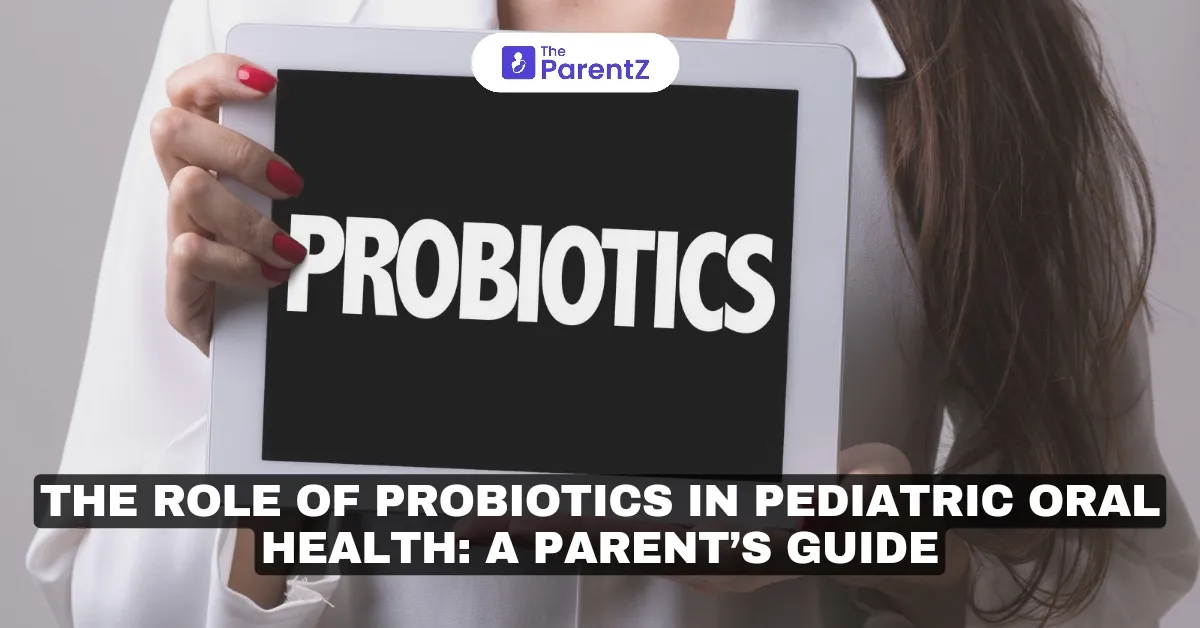When we think about probiotics, gut health often comes to mind. However, probiotics are also gaining attention for their positive impact on oral health—especially in children. These beneficial bacteria help maintain a healthy balance in the mouth, reducing harmful microbes that cause cavities, gum disease, and bad breath.
What Are Probiotics?
Probiotics are live microorganisms—primarily beneficial bacteria—that support a healthy balance of microbes in the body. While they are widely used to promote gut health, research shows that specific strains of probiotics can be beneficial for oral health by:
• Reducing harmful bacteria that cause cavities and gum disease
• Lowering inflammation in the gums
• Preventing bad breath (halitosis)
In children, who are still developing their immune systems and oral microbiome, probiotics can play a key role in preventing common dental issues.
How Probiotics Benefit Pediatric Oral Health
1. Reducing Cavity-Causing Bacteria
Certain probiotic strains, like Lactobacillus rhamnosus and Streptococcus salivarius, can inhibit the growth of Streptococcus mutans, the bacteria responsible for cavities. By introducing beneficial bacteria into the oral environment, probiotics reduce the risk of tooth decay.
Tip for Parents: Look for probiotics specifically formulated for oral health in children. They may come in chewable tablets, lozenges, or probiotic-enriched milk products.
2. Promoting Healthy Gums
Gum disease, or gingivitis, can develop when harmful bacteria accumulate along the gumline. Probiotics help reduce inflammation and harmful bacteria, promoting healthier gums.
• Probiotic Strains: Lactobacillus reuteri has been shown to reduce gum inflammation in children with mild gingivitis.
• Best Method: Probiotic lozenges or dissolvable powders that stay in the mouth longer for maximum effect.
Do’s and Don’ts:
• Do encourage your child to swish probiotic drinks or lozenges around their mouth before swallowing.
• Don’t skip regular brushing and flossing—probiotics work best as a supplement to good oral hygiene.
3. Preventing Bad Breath (Halitosis)
Bad breath in children is often caused by bacterial overgrowth in the mouth. Probiotic strains like Streptococcus salivarius K12 help reduce the bacteria responsible for unpleasant odors.
• Usage: Oral probiotic lozenges or powders containing S. salivarius K12 can be particularly effective when taken before bed.
• Pro Tip: Pair probiotic use with a proper nighttime brushing routine to enhance the effect.
4. Supporting a Balanced Oral Microbiome
The oral cavity hosts a diverse range of microorganisms, both good and bad. Maintaining a balanced microbiome is crucial for preventing oral diseases. Probiotics help by populating the mouth with beneficial bacteria, crowding out harmful ones, and creating a healthier environment.
Why This Matters for Kids: Children’s oral microbiomes are still developing, making it important to promote healthy bacterial growth early on.
Best Probiotic Sources for Children
1. Probiotic-Enriched Foods
• Yogurt: Choose plain yogurt with live active cultures and minimal added sugar.
• Kefir: A fermented milk drink rich in probiotics, suitable for older children.
• Cheese: Certain aged cheeses contain beneficial bacteria that promote oral health.
2. Probiotic Supplements
• Available in powder or capsule form, these can be added to water or milk for easy consumption.
How to Incorporate Probiotics into Your Child’s Routine
1. Morning Routine: Offer a probiotic chewable after breakfast to help establish good bacteria in the mouth throughout the day.
2. Bedtime Routine: Use a probiotic lozenge or drink after brushing at night to allow the beneficial bacteria to work overnight.
3. Encourage Probiotic Foods: Make yogurt or cheese a part of their lunch or snack routine.
What Does the Research Say?
Studies published in PubMed and guidelines from renowned pediatric dental associations suggest that probiotics can play a significant role in maintaining oral health in children. For example:
• A study in the Journal of Clinical Pediatric Dentistry found that children who consumed probiotic milk experienced fewer cavities over a 12-month period.
• Research from the American Academy of Pediatric Dentistry (AAPD) highlights the potential of probiotics in reducing gum disease and supporting a healthy oral microbiome.
Precautions and Considerations
• Consult a Pediatric Dentist: Before starting any probiotic regimen, it’s best to consult your child’s dentist, especially if they have a history of dental issues or allergies.
• Choose Age-Appropriate Products: Not all probiotic products are suitable for young children—look for those specifically designed for pediatric use.
• Maintain Good Oral Hygiene: Probiotics are a supplement, not a replacement, for brushing, flossing, and regular dental checkups.
Explore More on the TPZ App
For more tips on children’s oral health, check out other parent-friendly articles on the TPZ app, including:
A Note for Parents
Dear parents, keeping your child’s smile healthy doesn’t have to be stressful. Incorporating probiotics into their routine is a simple, natural way to support their oral health. Paired with regular brushing, flossing, and dental visits, probiotics can help your little one maintain a bright, happy smile. You’ve got this—keep up the great work!
By taking a proactive approach to oral health, you’re setting your child up for a lifetime of healthy smiles. Stay consistent, stay informed, and don’t hesitate to seek advice from your pediatric dentist.








Be the first one to comment on this story.